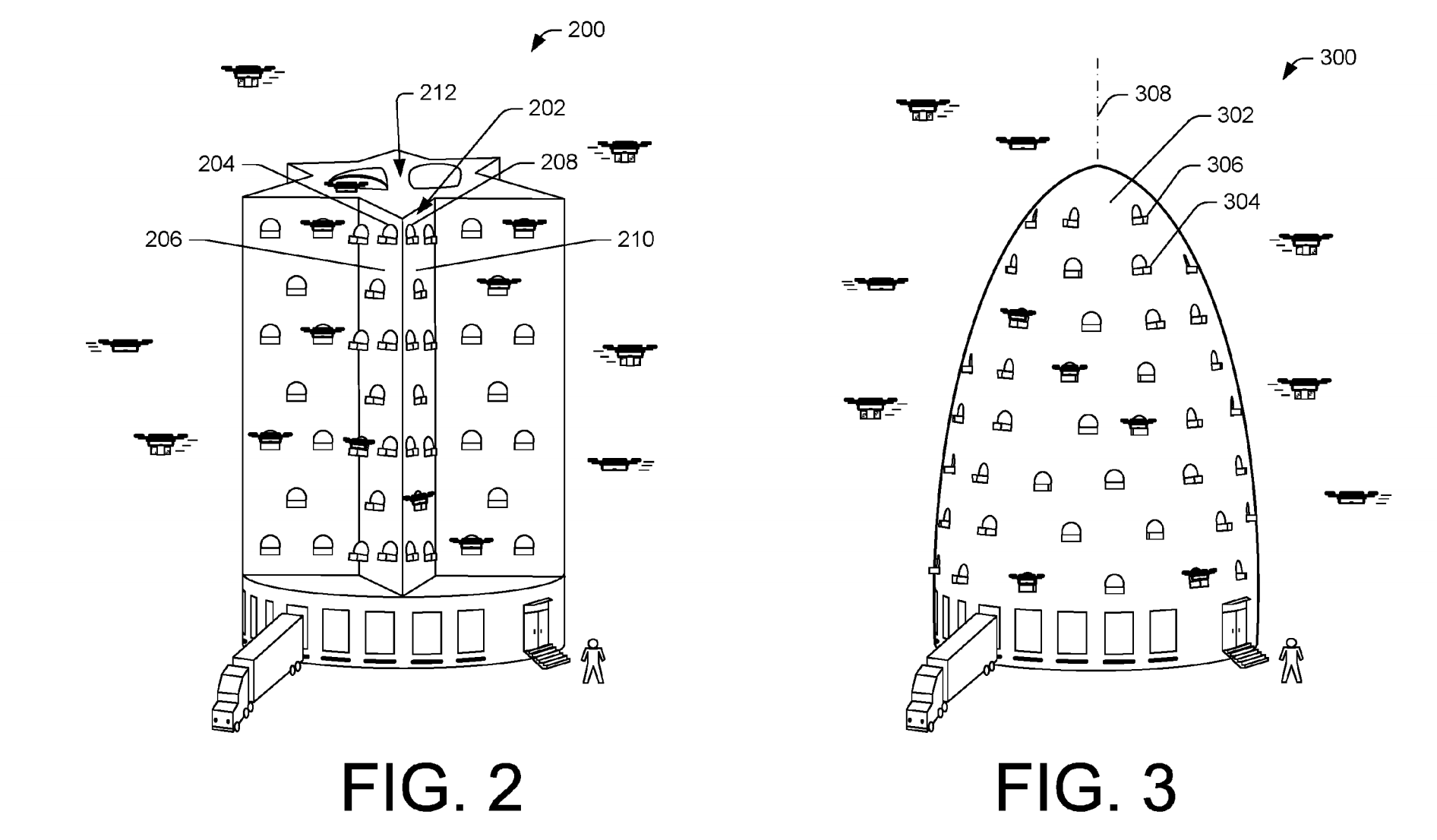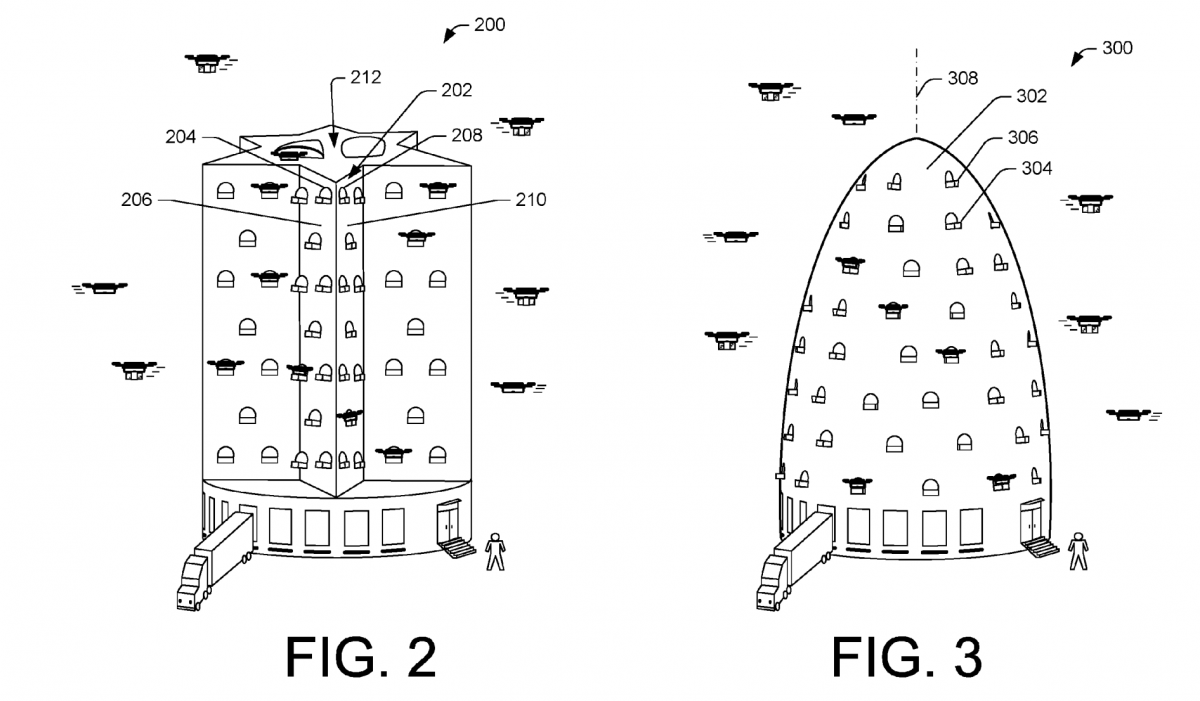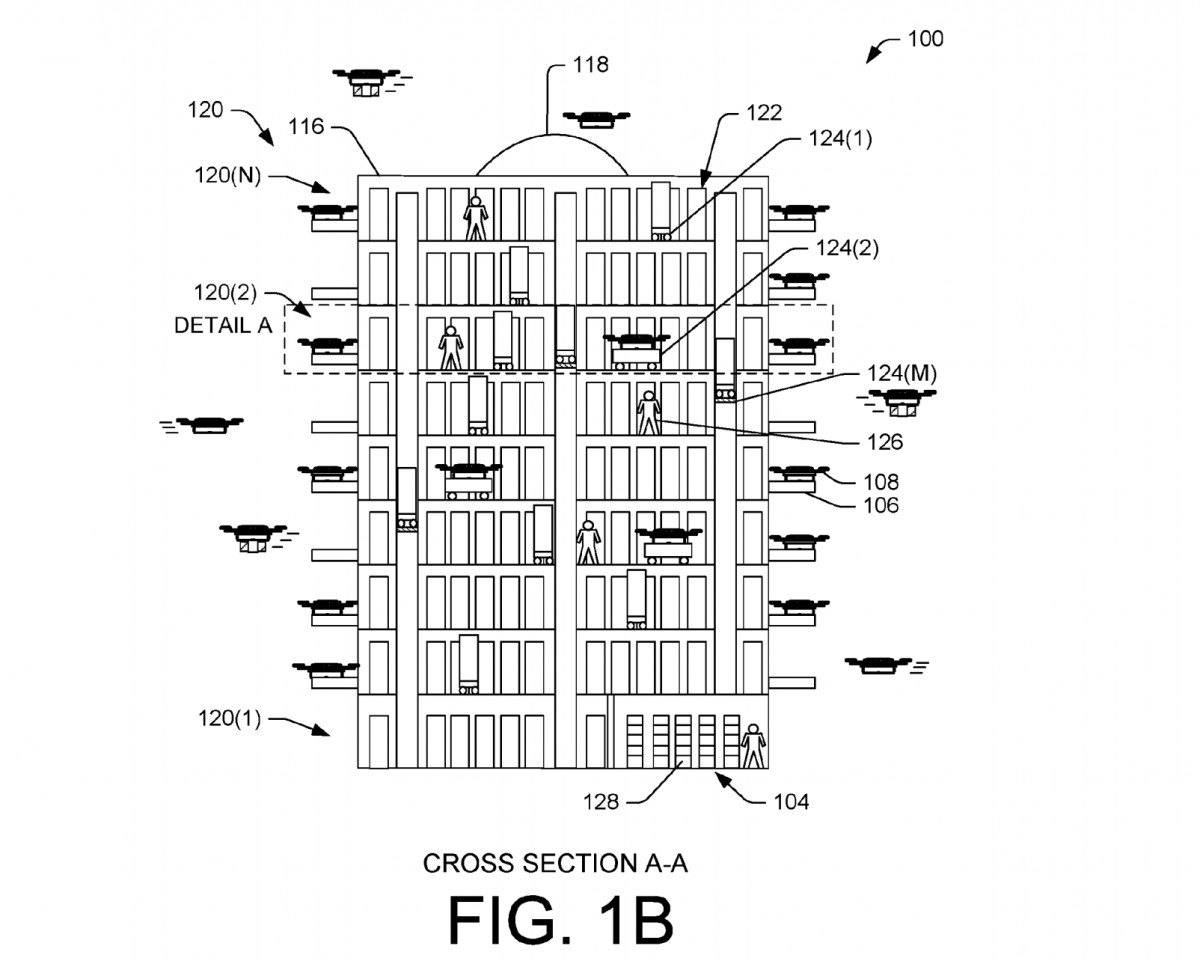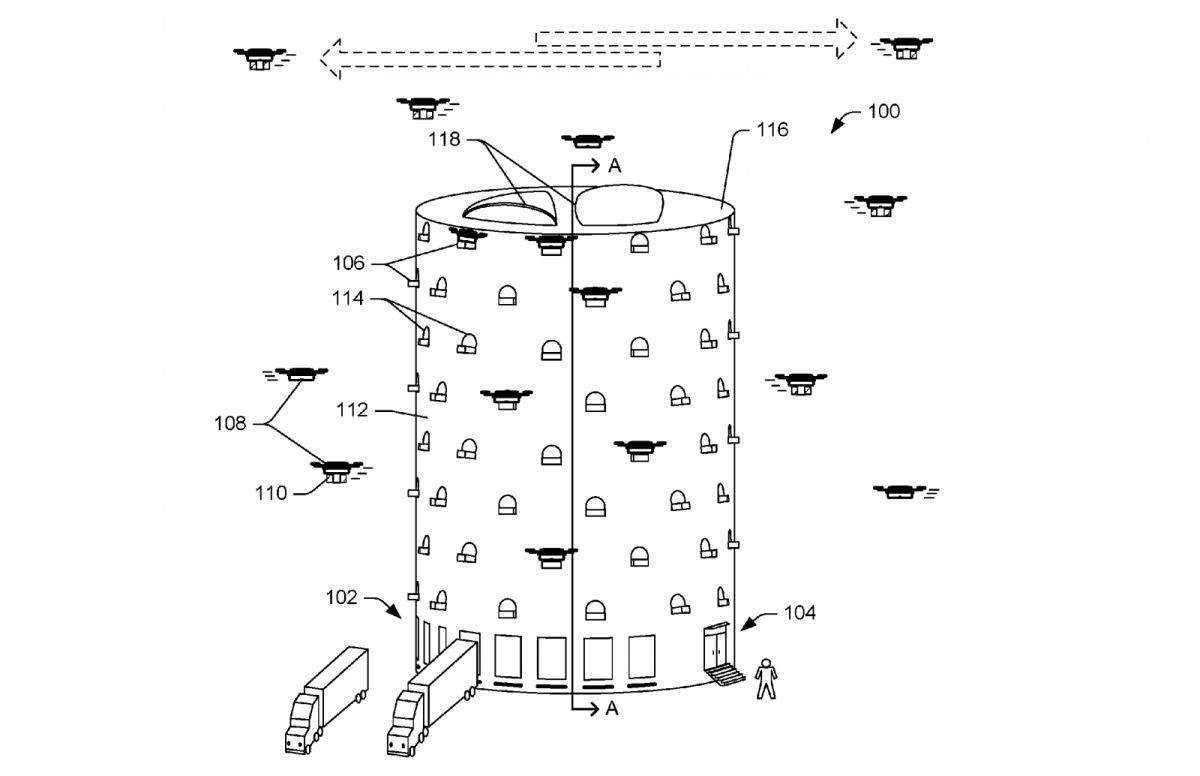
With the world of retail sales now all but conquered, Amazon is looking to the skies. A week after buying Whole Foods for $13.7 billion, a patent was published hinting at how the not-just-online retailer plans to scale drone delivery, an idea floated in earnest last year when the company unveiled Prime Air.
The prospect of a fleet of Amazon drones zipping around the skies with boxes of shoes and bulk orders of gum seems impractical and even a little dystopian, but the company is taking it seriously. The patent, which was initially filed in December 2015, outlines plans for a futuristic, hive-like drone warehouse that would serve as a home base for the company's army of delivery drones.
Related: Amazon and Walmart poised for online retail battle
Amazon describes the tower concept as a "multilevel fulfillment center for unmanned aerial vehicles," and such centers would be designed to blend in with other high-rise buildings in densely populated urban settings. Typical Amazon stock warehouses cannot be located within cities because of their massive scale. The drone centers would be able to receive product shipments by truck, and would feature a self-service station where customers could pick up packages in person.
The patent filing includes a number of sketches.



Amazon made its first airborne delivery on December 7, 2016, when a drone dropped off a package in Cambridgeshire, England, in only 13 minutes. Widespread drone delivery in urban areas is a little trickier, though, and hive towers aren't the only method Amazon is exploring. Earlier in 2016, the company filed a patent for a blimp-like sky warehouse from which drones would deliver packages. The blimps would hover over cities at a height of 45,000 feet. Regardless of the system by which the company scales drone deliveries, it's clear Amazon sees a future in it.
But just as is the case with the automated-car technology being pursued by companies like Uber and Tesla, there are plenty of concerns that come with an idea as ambitious as populating the skies with delivery drones. What about areas where drones are illegal? The patent filing includes rotor designs that would reduce noise, but how much would noise really be reduced, especially when many drones are entering and exiting a single facility? What about disgruntled Luddites blasting drones out of the sky with shotguns from their porches?
Amazon clearly isn't deterred, and it likely won't be long before we're ordering an Amazon drone to deliver us fresh kale from an Amazon Whole Foods, all in 30 minutes or less.
Uncommon Knowledge
Newsweek is committed to challenging conventional wisdom and finding connections in the search for common ground.
Newsweek is committed to challenging conventional wisdom and finding connections in the search for common ground.
About the writer
Ryan Bort is a staff writer covering culture for Newsweek. Previously, he was a freelance writer and editor, and his ... Read more
To read how Newsweek uses AI as a newsroom tool, Click here.








